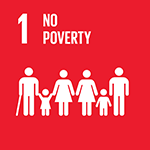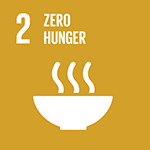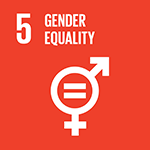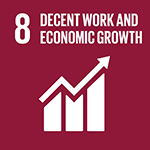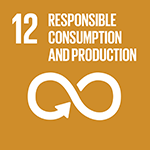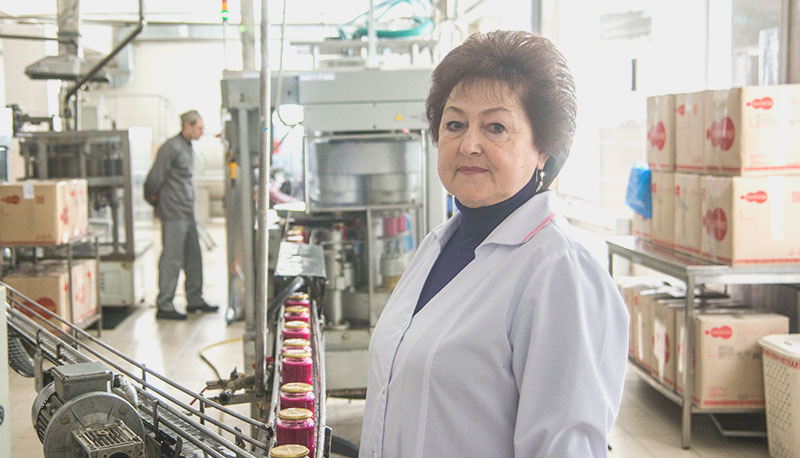LUBOV’S STORY
The female CEO opening up new markets for Ukrainian farmers
[column md=”12″]
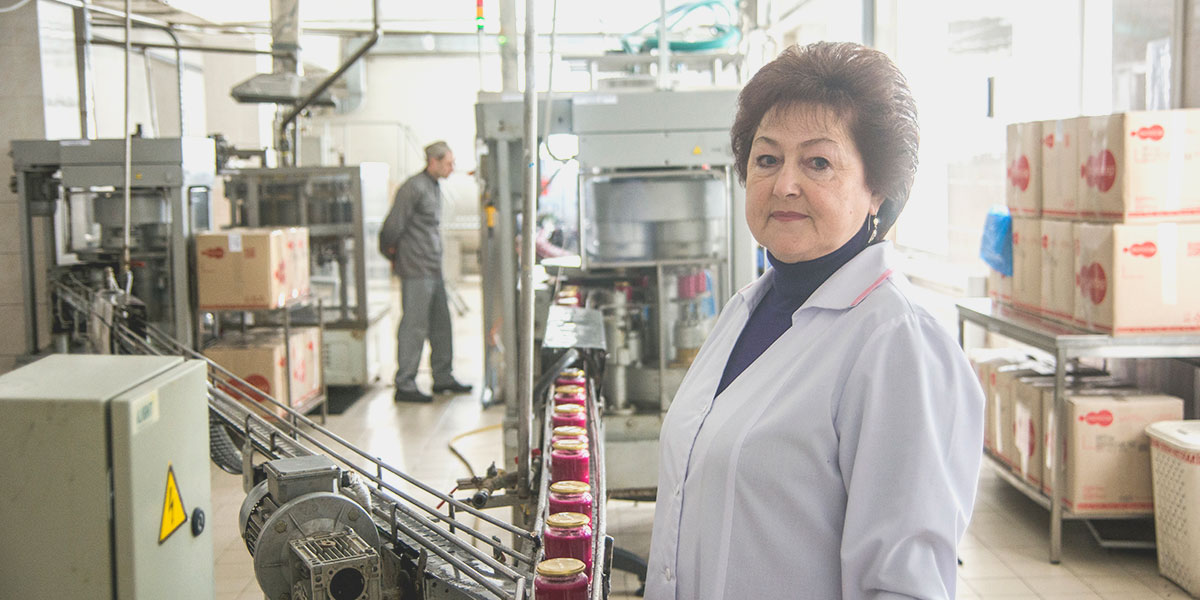
[/column]
[/row]
When the Soviet Union fell in the early 90s, Lubov Semenyuk found herself in charge of a food factory that was no longer profitable. After her director and finance director resigned, it was up to her to turn the business around.
“After our huge, 400-employee enterprise had collapsed, I analysed the reasons and, starting a new enterprise, set myself a goal – to prove to myself and the others that I can run business in Ukraine legally and transparently,” says Lubov.
“I was passionate to make a change in the old food processing business in my city. My mom, being a farmer herself, made me curious about the food that farmers produce. It was my inspiration.”
She decided to divide the business into three smaller businesses, which would allow each one to better pay their taxes, pay a living wage to their employees, and allow space to grow and thrive as businesses. This was no small task; her former bosses continually urged her to give up and the economy continued to be mired in corruption.
18 years later, the Vinnytsya Food and Gustatory Factory is one of the leading enterprises in the region in the sphere of food and vegetable processing. In 2014, the company successfully passed an international audit for FSSC:22000 certification, ensuring access to international markets. The mission of the company is to produce high-quality natural and safe products at affordable prices.
[column md=”6″]
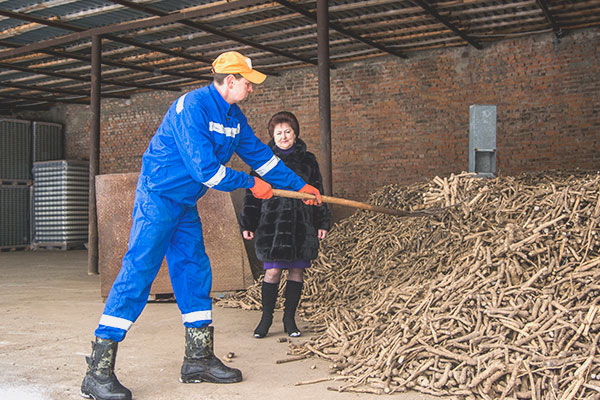
[/column]
[column md=”6″]
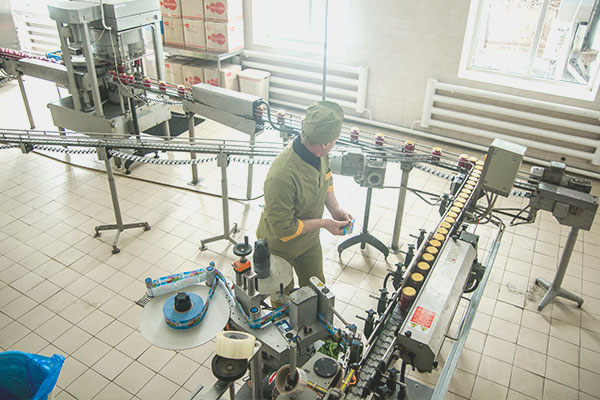
[/column]
[/row]
Ms. Semenyuk graduated with a Diploma with distinction (the equivalent to a combined Bachelor and Master degree) as an Engineer Economist from the Odessa Technological Institute of Food Industry during the Soviet era. But it’s her business acumen that has helped the Vinnytsya Food and Gustatory Factory thrive since she took the helm.
“As a woman in a man’s business world, I have to be very focused and active,” says Lubov. The only way to make people follow you as a leader is to show them your commitment and result-orientation. I am really proud that, over the years, I have built very trustworthy relationships with male partners.”
[column md=”12″]
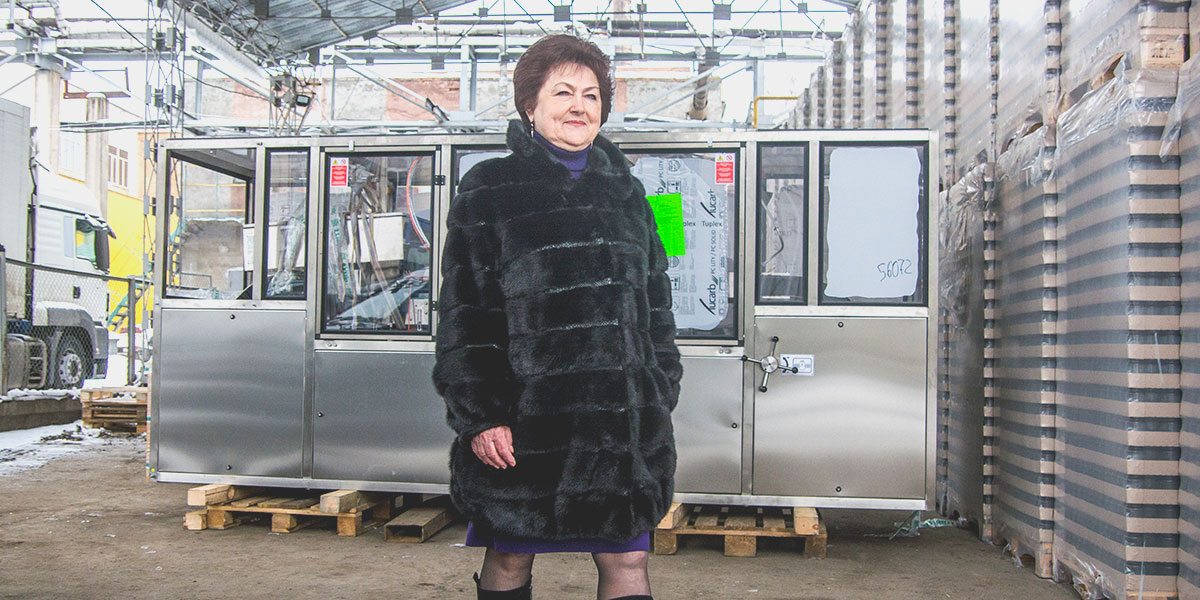
[/column]
[/row]
In addition, Lubov has helped other women enter the agribusiness workforce, by providing them with a market.
Most of the small farmer suppliers of the Vinnytsya Food and Gustatory factory are women. During the growing season, a truck goes to villages to take raw materials from farmers. Every day, 30 village collectors buy up to three tons of horseradish from private households in Vinnytsya, Khmelnitsky, Lviv, Ternopil, Ivano-Frankivsk, and Zakarpattya oblasts.
“Ukrainian women are mainly engaged in low-paid economic activities in agriculture, and that type of work is much harder. Therefore, it is important to support females in opening new markets for them,” says Lubov. “Hard work should pay off!”
“Ukrainian women are very hardworking, but with a lower level of confidence in themselves,” she adds. “I would share with them my simple advice: believe in yourselves and lead the team by your example. Women can do anything, simply because it is from the bottom of their heart!”
The USAID-funded Agriculture and Rural Development Support (ARDS) project is now supporting Lubov and her business to expand markets for these farmers. By co-investing into equipment for updating the factory’s bottling and packaging line for sauces and spices, the project will increase efficiency, expand the range of products produced and improve working conditions.
[column md=”6″]
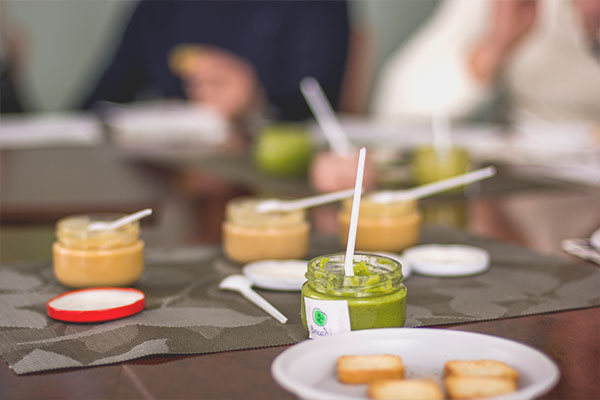
[/column]
[column md=”6″]
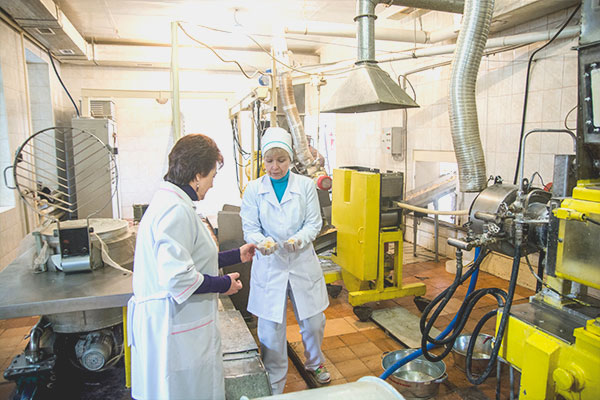
[/column]
[/row]
WHAT THE EXPERTS SAY
“According to the World Economic Forum’s 2016 Global Gender Gap Report, Ukraine ranks 69th out of 144 countries on closing the overall gender gap between men and women,” says Galyna Skarga, Head of the Union of Rural Women in Ukraine. “In the area of Economic Participation and Opportunity, Ukraine is closing the gap with a score of 70 per cent parity, but change is slow (in 2006 the same sub index was 68 per cent).”
“Most women in Ukraine are engaged in low-paid economic activity for historical reasons. Men were fighting or hunting and women were taking care of their homes. It remains the same now: for the majority of the population, especially in rural areas, a woman should be engaged in household chores, children, and family. This type of work is low-paid.”
“Rural Ukrainian female farmers have difficulty accessing markets for their produce because they are less likely to have a driver’s license than their urban counterparts. Even if a woman did have a driver’s license, it is unlikely she would be comfortable driving large truckloads of produce to markets. Many rural citizens sell to wholesalers because if the wholesaler will come to pick up the produce, the farmer does not have to transport it. The wholesaler then takes on any processing and gains the added value. Currently, few rural processing centres exist for rural women to access.”
“Lubov’s story is a very bright and inspiring example of woman-leader in agricultural sector. Agricultural business is mainly dominated by men in Ukraine, and Lubov is a good model for other women to follow her way, especially for rural women.”
[row]
[column md=”4″]
Case study prepared by:
Commentary provided by:
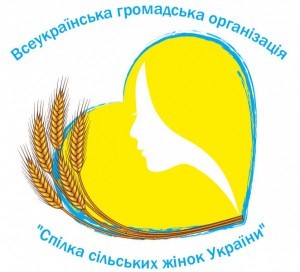
[/column]
[/row]
Photo credits: ARDS Project
SDGs covered:
